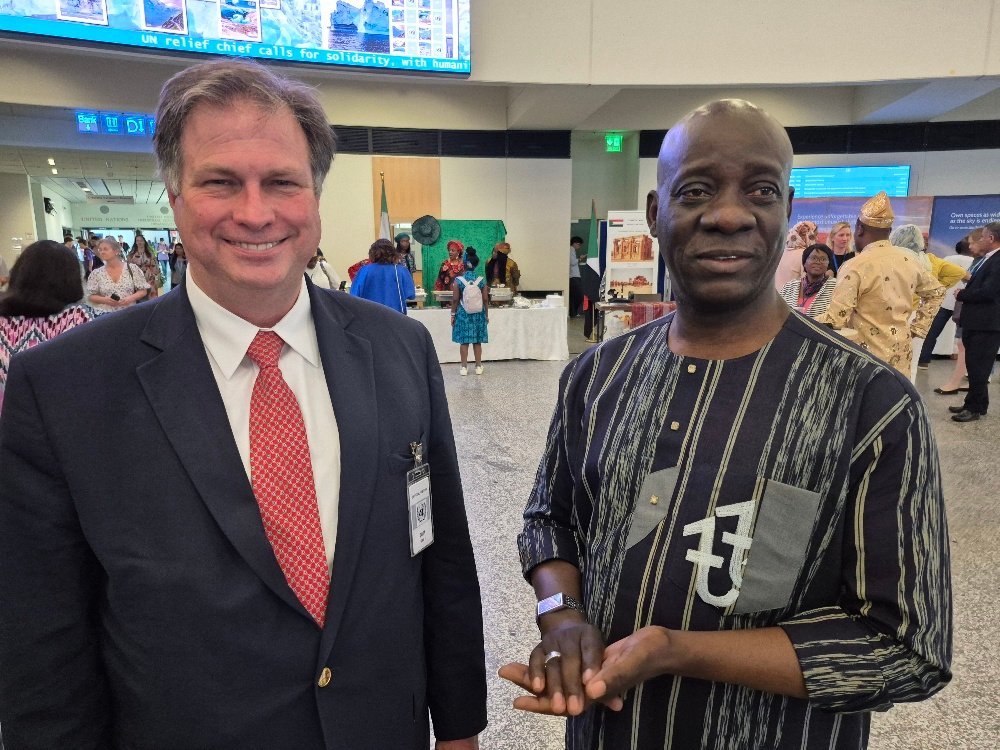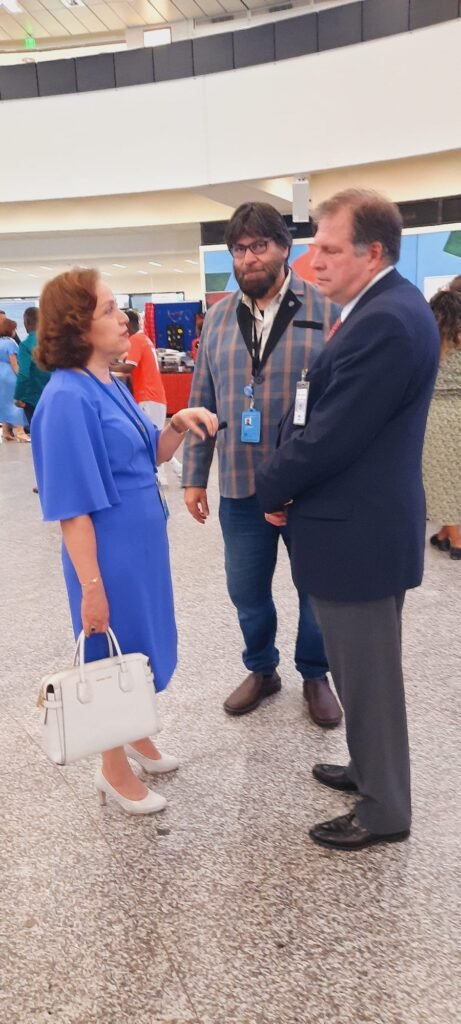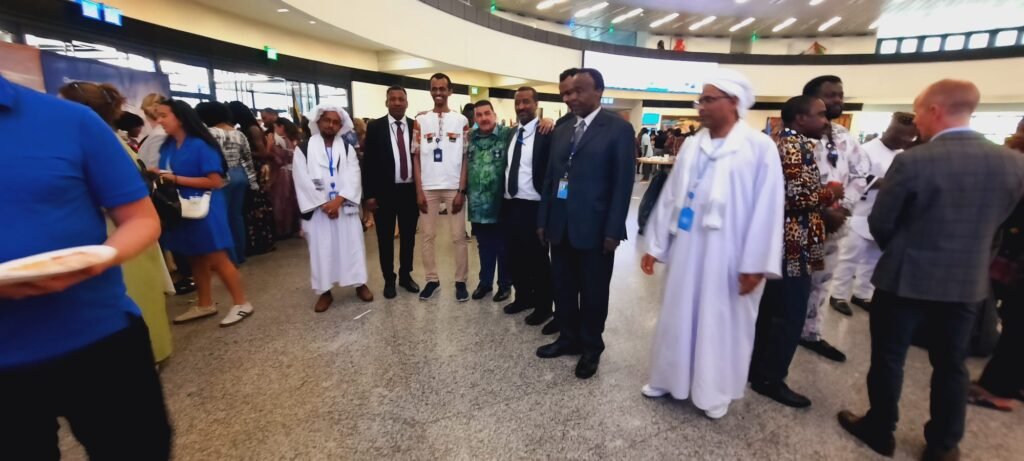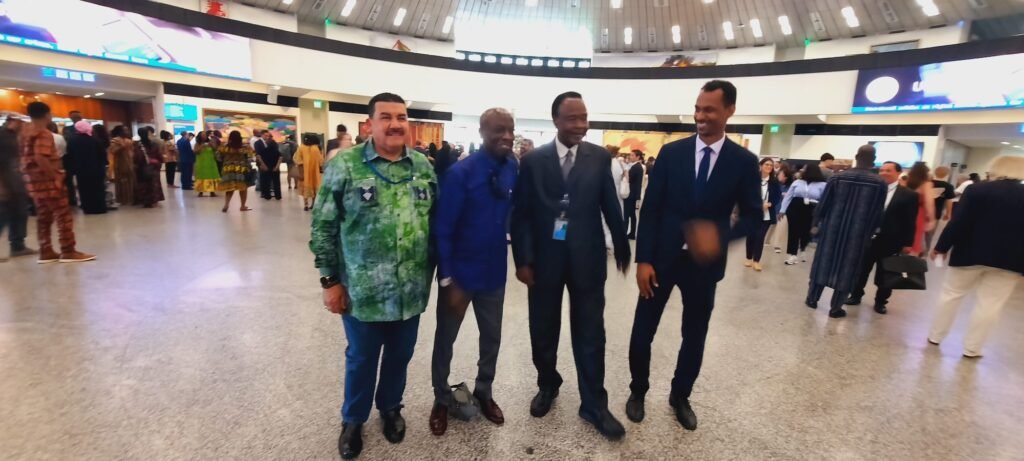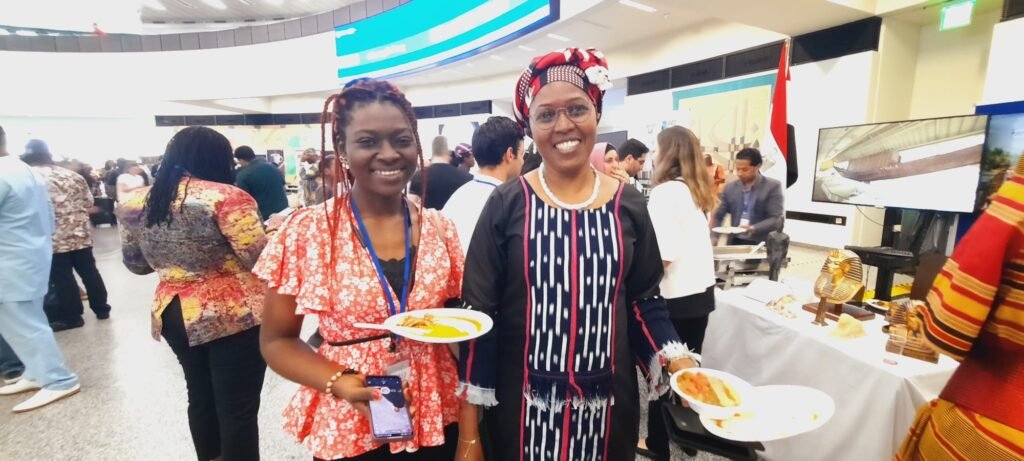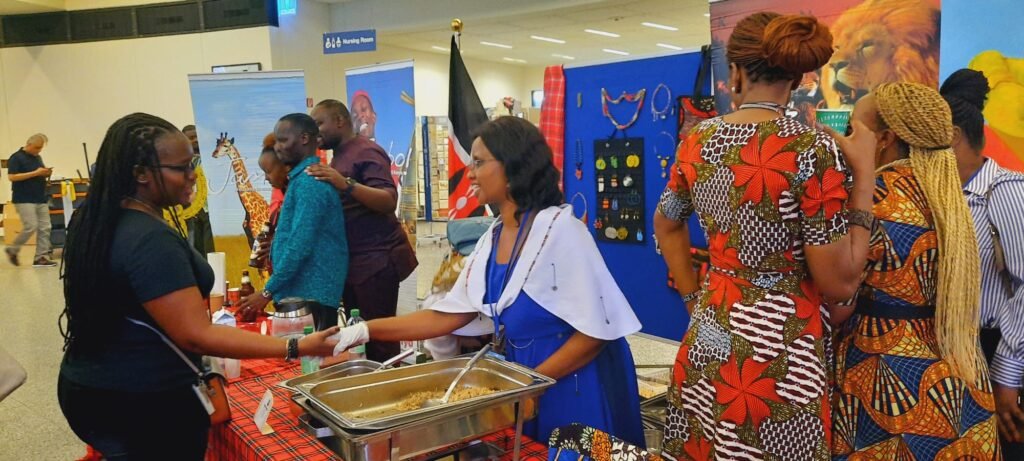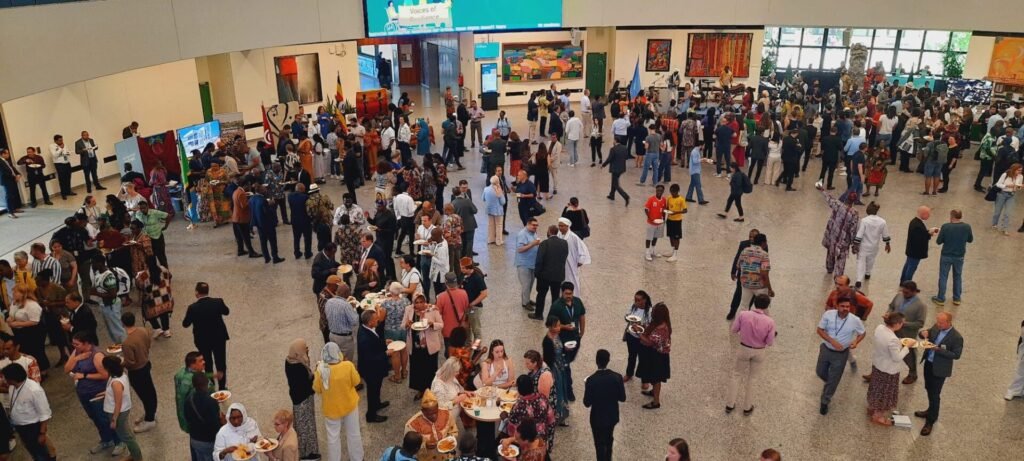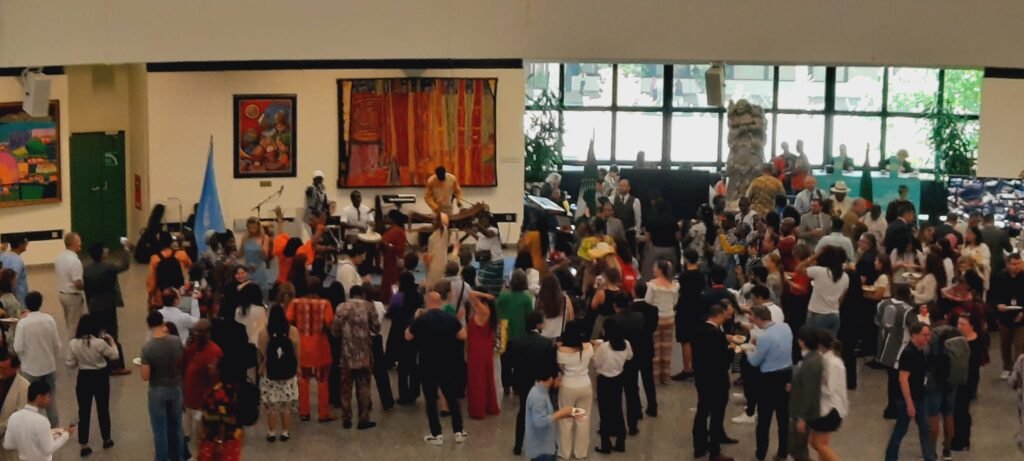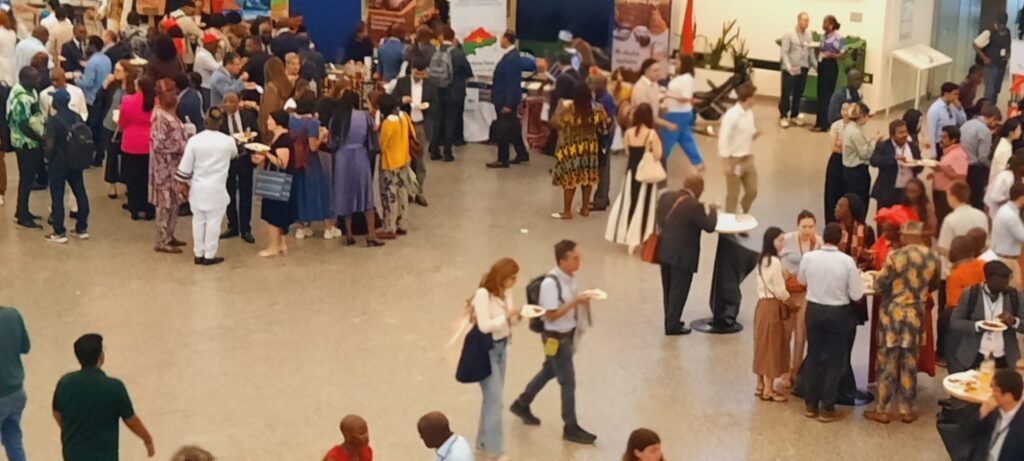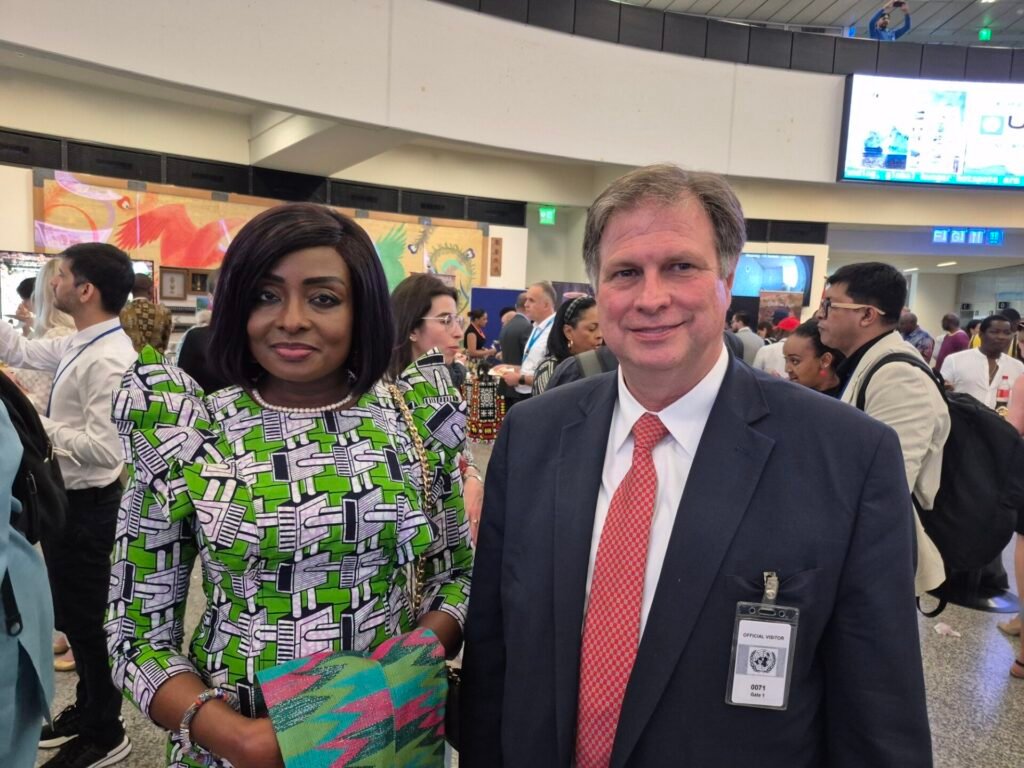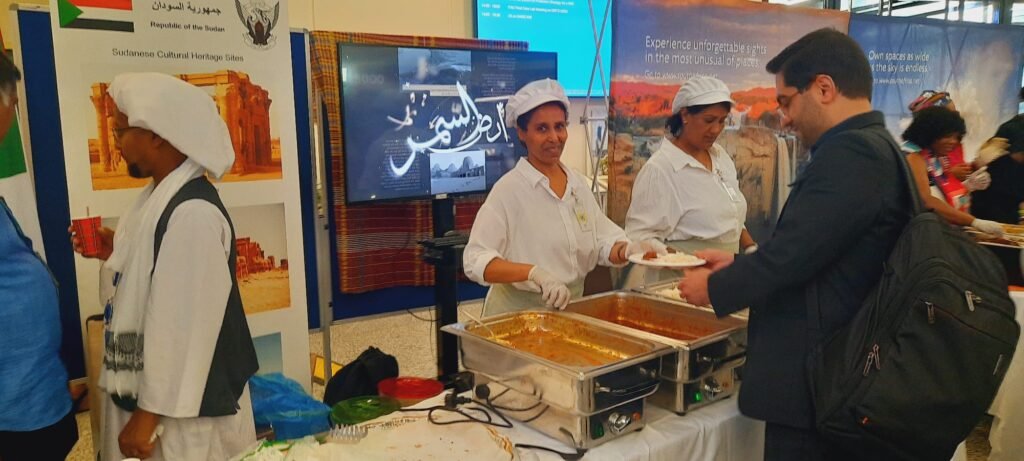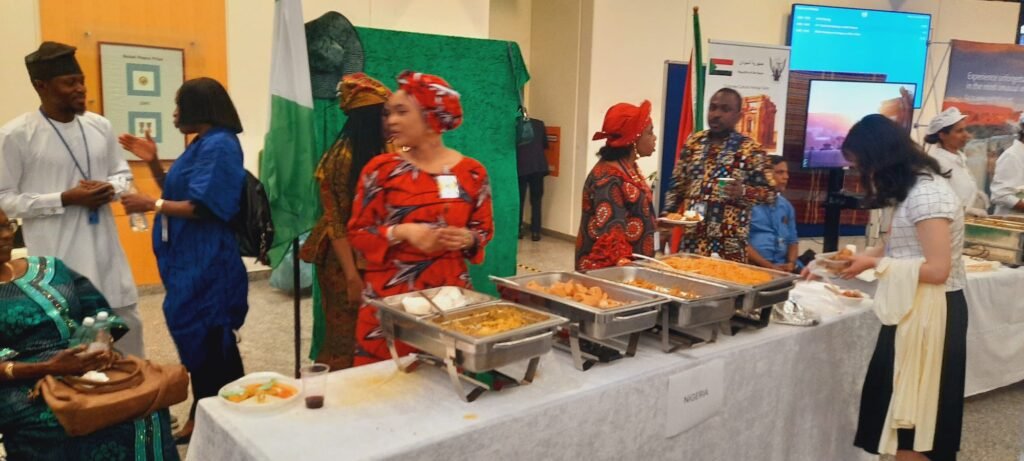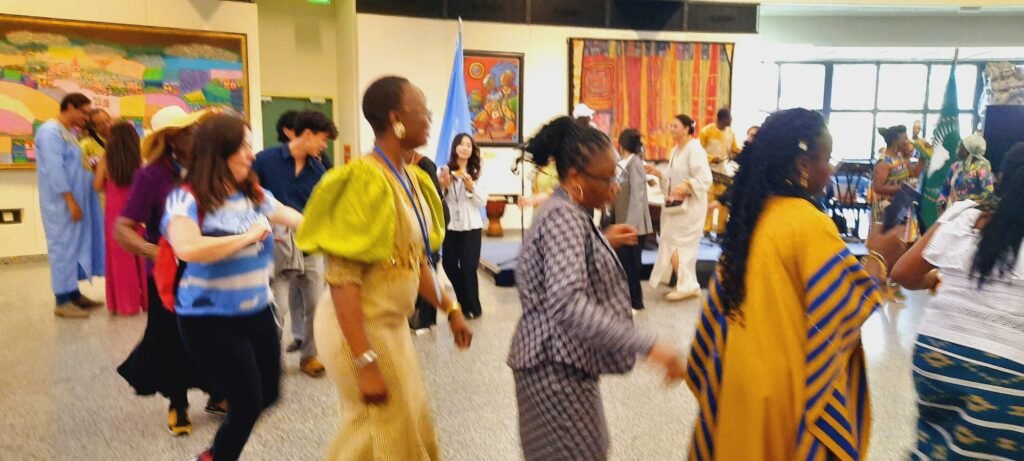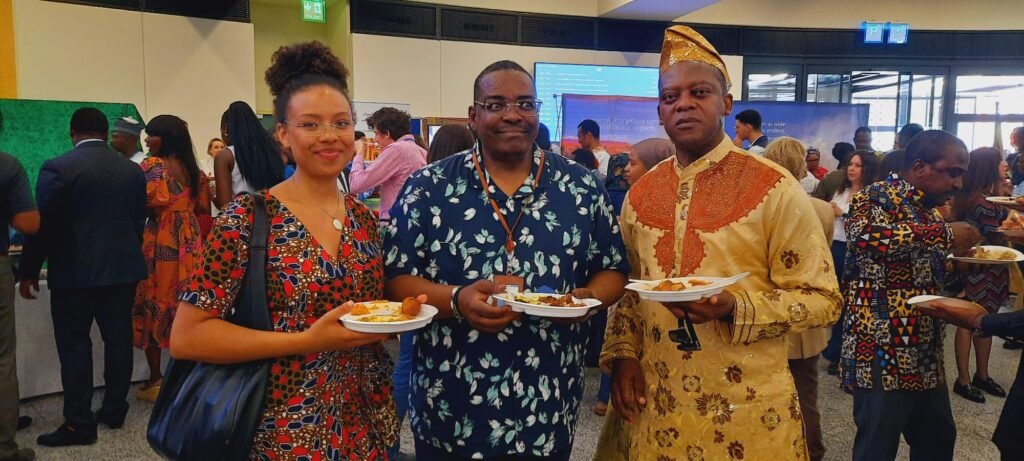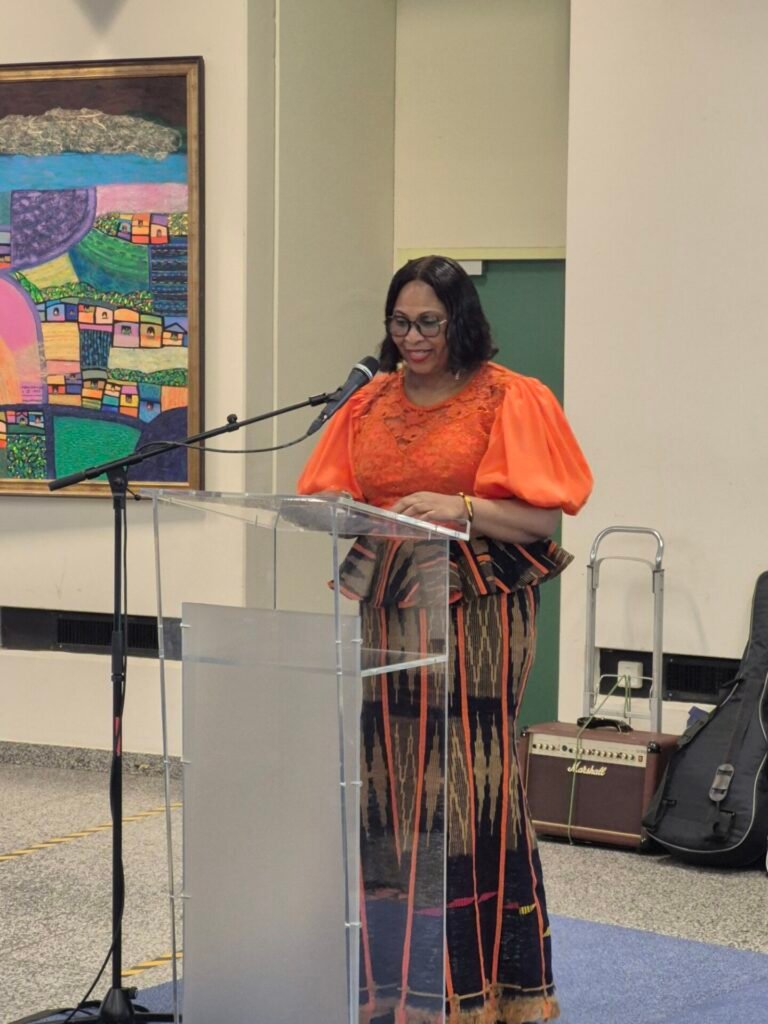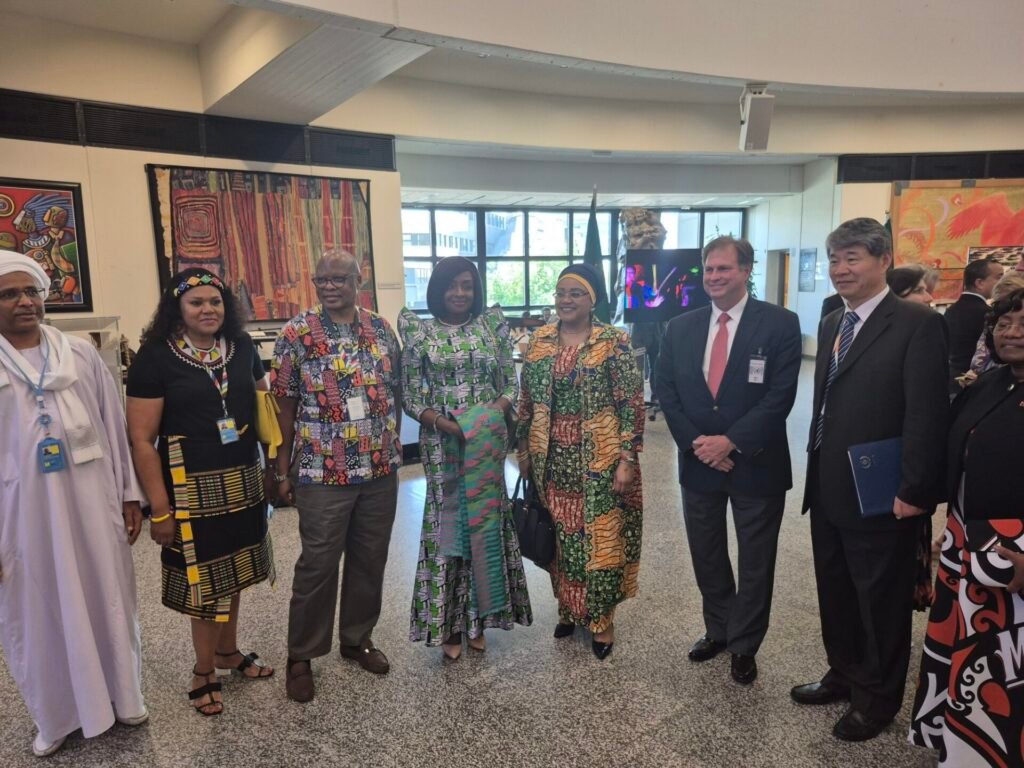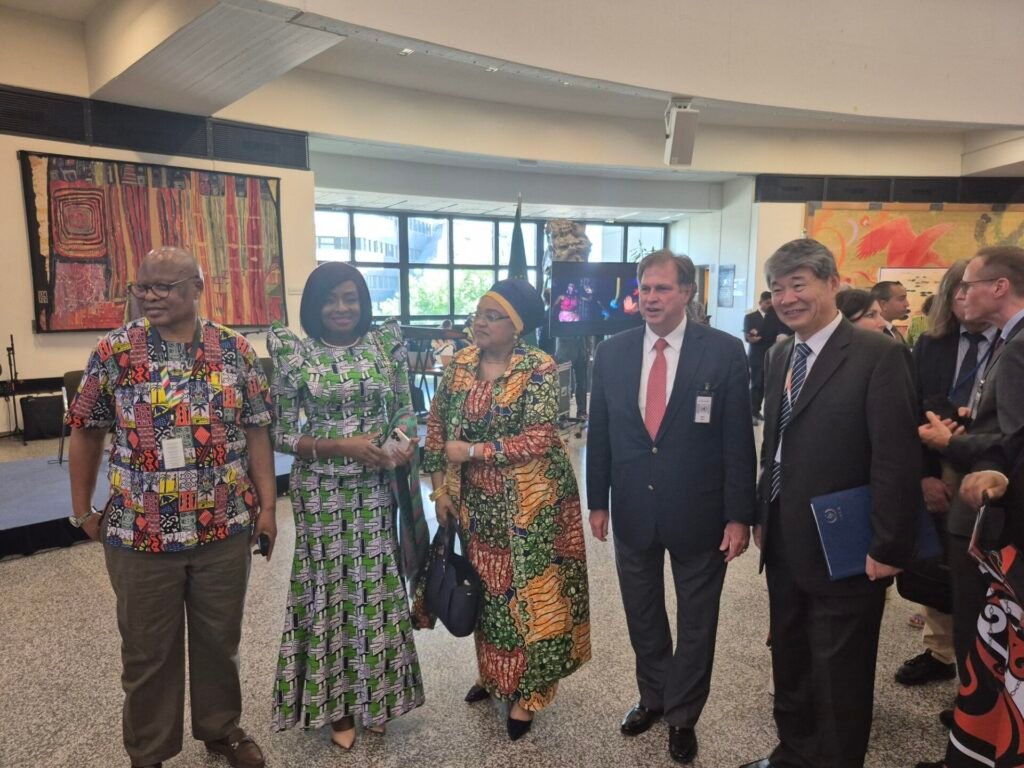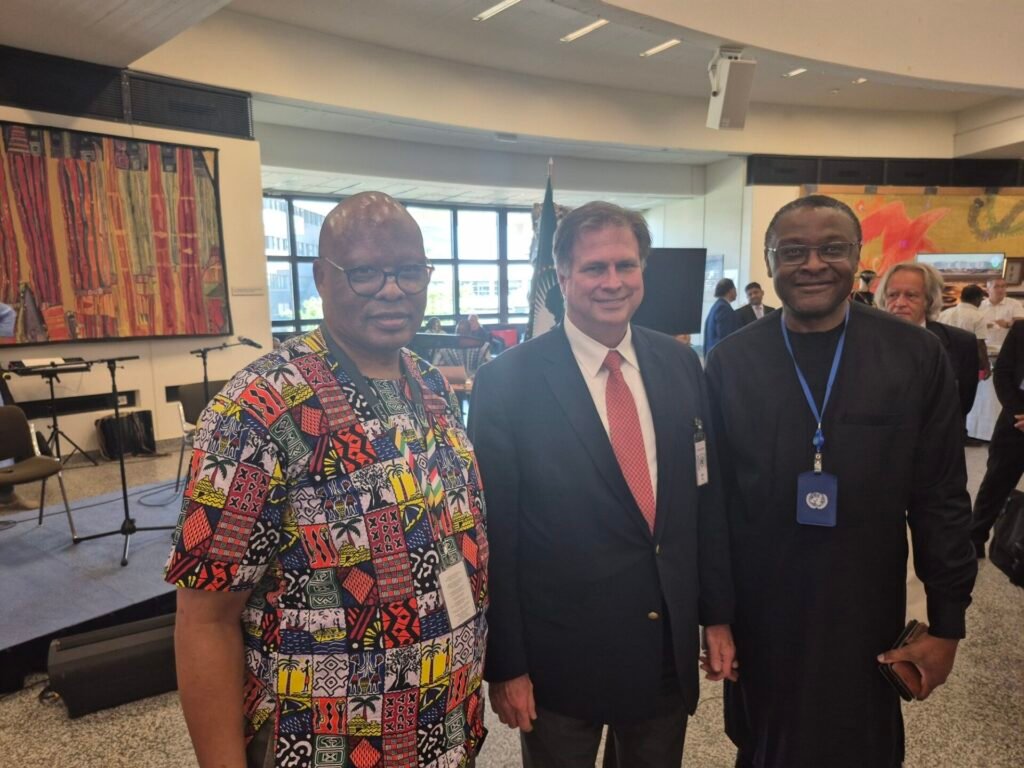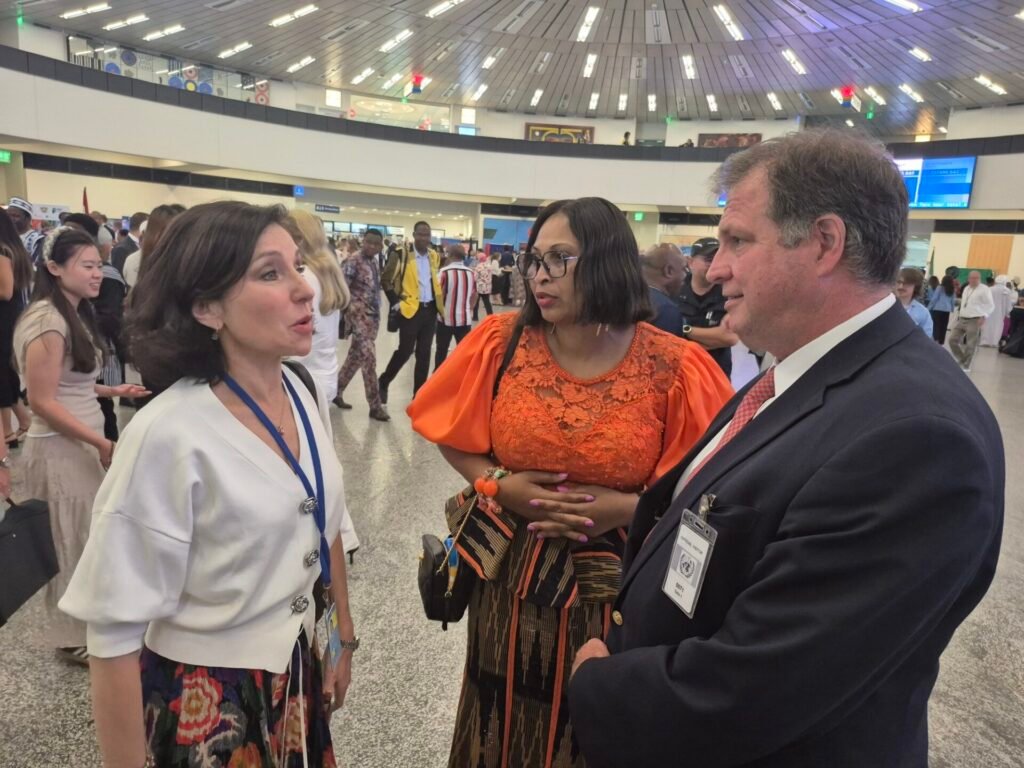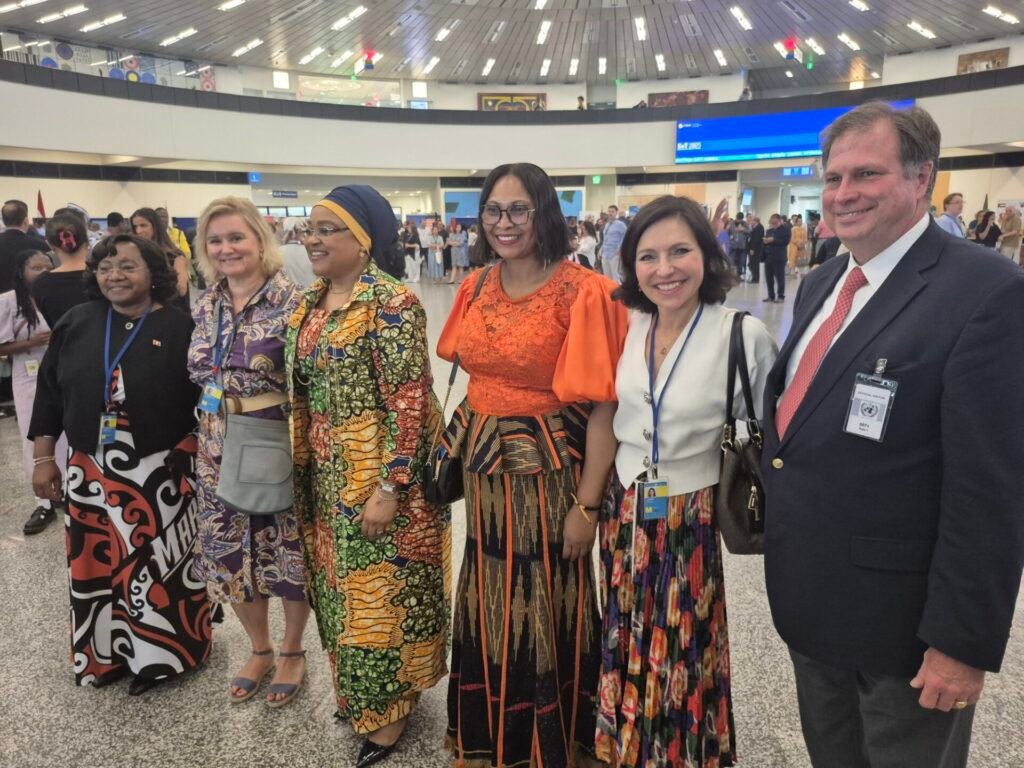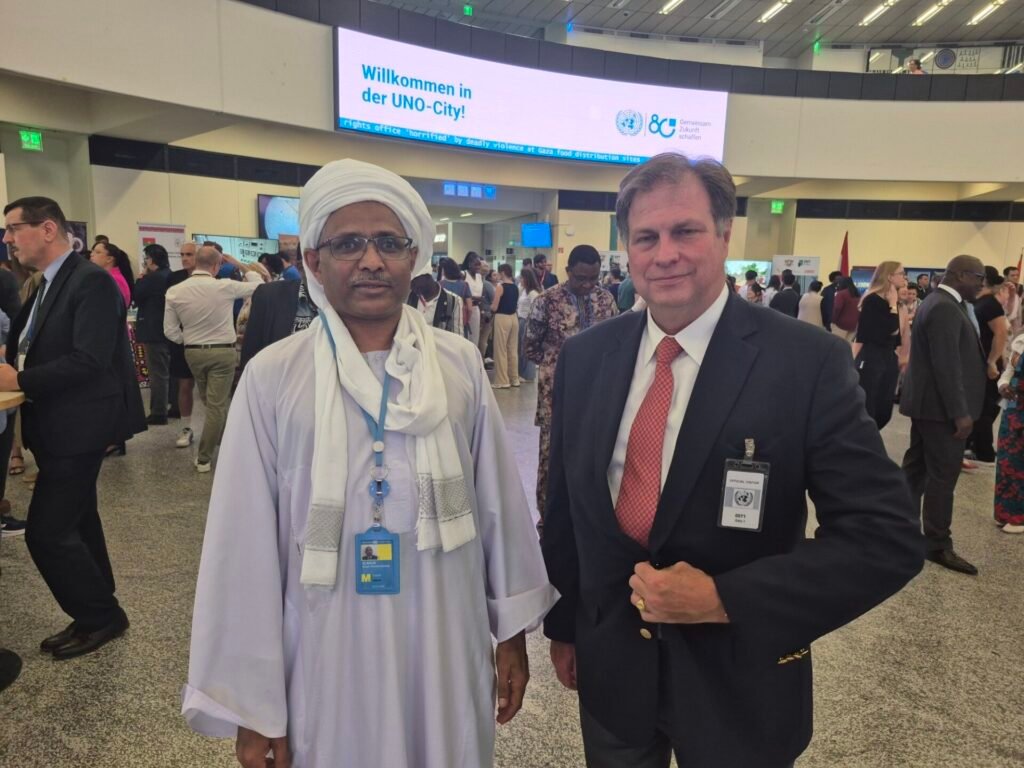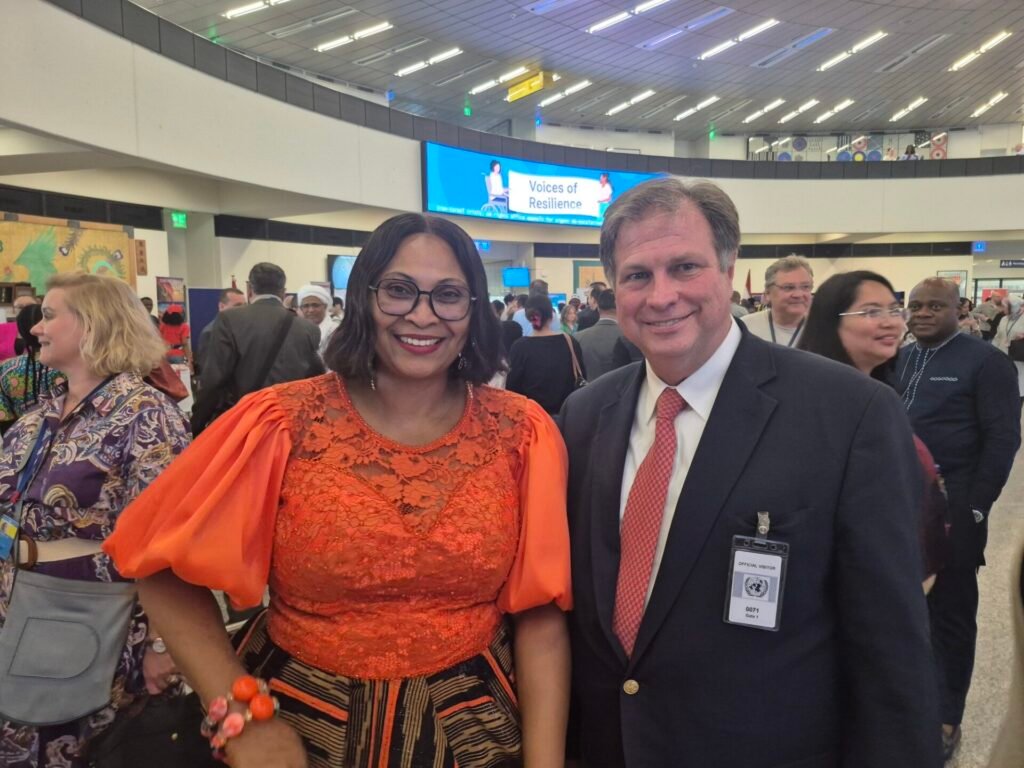The Opening Ceremony: Setting the Stage for Justice
On a day poised for reflection and celebration, the opening ceremony of the event in Vienna marked a significant moment for advocates of justice, specifically tailored to address the historical injustices faced by Africans and people of African descent. Mr. James Paul Bond, opened the event with compelling remarks that underscored the theme, “Justice for Africans and People of African Descent through Reparations.” This theme resonates deeply amidst a growing global acknowledgment of the need for reparative justice, emphasizing that the conversations surrounding reparations are not only timely but critical.
The opening statements articulated the ongoing struggles against systemic inequalities and the enduring impacts of colonialism and exploitation. By foregrounding the theme of reparations, the gathering served to intensify the dialogue about justice, placing reparations as a cornerstone for healing and restitution. Reparations encompass a broad spectrum of initiatives aimed at recognizing and addressing the historical grievances that have marginalized African communities and their descendants. Such measures are essential to restore dignity and equity, fostering a comprehensive understanding of justice that transcends mere acknowledgment of past wrongs.
Additionally, Mr. James Paul Bond’s address facilitated an environment of solidarity among attendees, reinforcing the collective responsibility to advocate for change. The ceremony explicitly linked the theme of reparations with the need for policy reforms and structural changes that can pave the way for a more just future. This opening set the scene for the proceedings that would follow, inviting participants to become active contributors to the ongoing movement for reparations and justice. With a united purpose, the event aimed to amplify the voices that have long been silenced, thereby igniting a powerful movement toward justice for Africans worldwide.
A Historical Perspective: The Impact of Colonial Legacy
On the occasion of the Justice for Africans event in Vienna, Ms. Maimounata Ouattara, the Ambassador of Burkina Faso, delivered a compelling speech that serves as a crucial reflection on Africa’s past and its enduring impact on the present. In her address, she meticulously outlined the extensive suffering and loss of freedom that African nations and peoples endured throughout the colonial era. This dark chapter in history is characterized by exploitation, cultural domination, and economic deprivation, all of which have left an indelible mark on the continent.
Colonialism stripped African countries of their autonomy, imposed artificial borders, and disrupted traditional societies. As noted by Ambassador Ouattara, the ramifications of these actions extend far beyond the historical timeline; they continue to manifest in contemporary issues such as economic disparity, social unrest, and the quest for identity. The legacy of colonial rule has precipitated ongoing discussions around reparations, as affected countries seek acknowledgment and redress for the injustices experienced by their ancestors.
Ambassador Ouattara emphasized the importance of recognizing this painful past, articulating that only through a sincere acknowledgment of historical injustices can societies move towards healing and justice. She made the case that the refusal to engage with these historical realities perpetuates cycles of inequity and unrest. In this context, the dialogue on reparations becomes not merely a financial discussion but a moral imperative that seeks to restore dignity and address the wounds inflicted by colonial powers.
In reflecting on Africa’s colonial history, we are reminded that the journey towards recovery and justice is long, yet essential. The speech delivered by Ms. Ouattara serves as an important call to action, urging us not only to confront the ghost of colonialism but also to actively participate in fostering a more equitable future for all Africans, acknowledging the struggles of the past while striving for justice in the present.
Cultural Showcase: Celebrating African Heritage
The cultural program at the event in Vienna was a vibrant tapestry of African heritage, reflecting the continent’s rich diversity. This showcase featured an array of performances that delighted attendees and created a communal atmosphere rooted in pride and shared identity. Traditional songs resonated throughout the venue, with singers employing both contemporary and classical African rhythms. The melodies, often accompanied by rich harmonies, aptly represented various regional styles, bringing to life the essence of different cultures across the African continent.
Instrumental performances added an extra layer of depth to the event, as musicians skillfully played a variety of traditional instruments. The kora, djembe, and mbira were just a few examples of the captivating sounds that filled the space. Each note of these unique instruments told a story, connecting attendees to the heritage and history of the specific communities they represented. This musical experience not only entertained but also highlighted the significance of these contributions in advocating for a deeper understanding of African cultures.
In addition to the musical offerings, traditional dances captivated audiences with their expressive movements and cultural significance. Each dance portrayed stories of courage, hope, and resilience, fostering a deeper appreciation of the unique narratives that exist within African communities. Attendees were encouraged to participate, breaking down barriers and promoting unity through shared experience.
The event also showcased the culinary arts, offering a taste of Africa through various traditional dishes. Participants sampled foods from different regions, enjoying flavors that epitomized the continent’s culinary richness. Furthermore, art displays allowed local artisans to showcase their work, nurturing a sense of community while promoting the visibility of African creativity. Collectively, this cultural showcase served as a key component of the event, reinforcing the importance of heritage in the quest for reparative justice and fostering a spirit of solidarity among all present.
A Fruitful Closing: Reflections on a Successful Event
The event, themed around Justice for Africans, culminated in a powerful and reflective closing session that underscored the day’s significance. Participants voiced overwhelming satisfaction with the structure and content presented throughout the various sessions, highlighting the urgency of discussing justice and reparations for Africans and people of African descent. The positive feedback received from attendees illustrated not only their engagement but also the necessity for such conversations in a global context, contributing to a collective commitment towards change.
Throughout the day, discussions fostered a remarkable sense of camaraderie among participants. Networking opportunities allowed individuals from diverse backgrounds to forge meaningful connections that form the bedrock for future alliances. This spirit of unity was palpable, exemplifying a shared understanding that the mission for justice transcends geographical boundaries. The collaborative atmosphere prompted participants to share experiences, insights, and perspectives that enriched the discourse, thus deepening the understanding of the multifaceted challenges facing African communities worldwide.
Moreover, the event served as a reminder of the essential dialogues that must continue beyond this initial gathering. Many participants publicly committed to advocating for justice in their local and international spheres, pledging to carry forward the momentum generated during the day. They recognized that addressing issues of injustice and seeking reparations requires ongoing efforts and a sustained dialogue. The discussions prompted a collective call to action, recognizing that the path toward equity and justice for African people demands dedication and perseverance. In conclusion, the successful outcome of this event lays a foundation for future initiatives focused on advocacy, awareness, and lasting change in the quest for justice for Africans and people of African descent.
